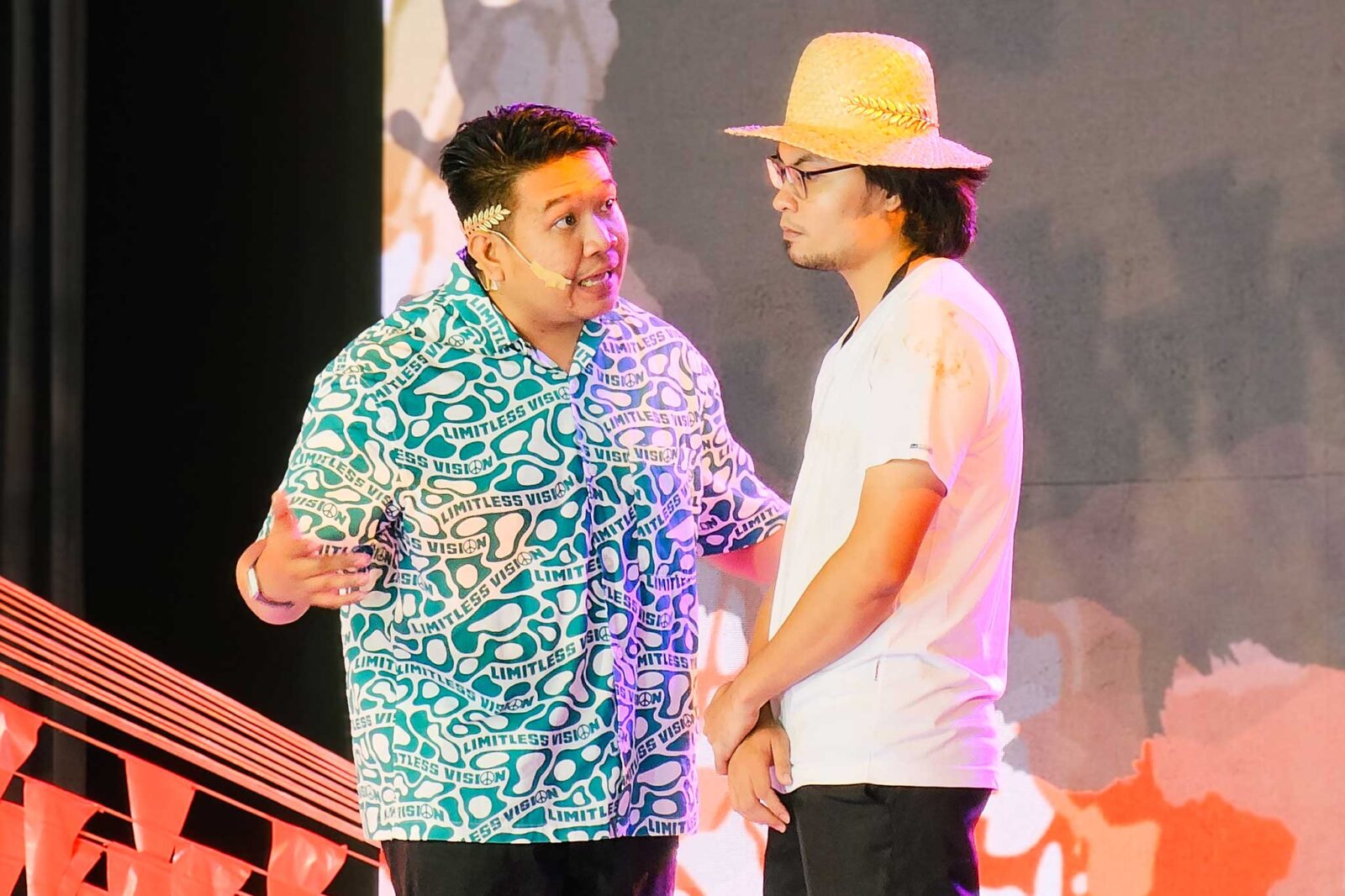100 years ago, the first ever balagtasan was staged in the country. The art, which takes it name from poet Francisco Balagtas, is a form of debate done in rhyming verses. The art form is a place where two poets can express their opinions on a certain social issue through the use of wit and clever wordplay.
A century later, the Cultural Center of the Philippines’ Kanto Kultura arm decided to commemorate the momentous occasion with a ‘Baraptasan,’ a portmanteau of the words balagtasan and rap. The ‘Baraptasan’ was a nationwide tournament where groups of three (two poets and one lakandiwa, the judge) could send in submissions of their takes on a specific topic delivered in the form of rap and balagtasan. The format is similar to another pillar of Filipino culture today — FlipTop. The two art forms utilize the same skills when crafting the perfect verses to attack their opponent or their stances.

After sifting through the different submissions, 10 groups from all over the country convened to compete in the Baraptasan 2024 Grand Finals. The roster of judges proved themselves to be tough acts to please — you have Cultural Center of the Philippines President Michelle Nikki Junia, acclaimed drummer Stanley Seludo, award-winning poet Teo T. Antonio, Filipino professor Lourdes Zorilla-Hinampas, and acclaimed rapper JMara of Morobeats. Nevertheless, these 10 groups gave their all in proving their worth as finalists.
The finalists were given the freedom to choose between two topics to battle on: whether or not the use of social media is beneficial, or whether or not Filipinos should migrate and work abroad or stay at home. All 10 amped up the theatrics — many were dressed in urban streetwear, rapped over a beat, and dramatized their interactions with one another. They were feisty; unafraid to deliver every hard-hitting line with gusto.
However, among all the finalists, one group truly stood out: Koronadal City’s Angel Faith Leal, Jon Van Esmael Lapu, and Philip Jay Leaño of Koronadal, South Cotabato. The trio were dressed up in traditional clothing and delivered a high-energy dramatic “baraptasan” on the topic of social media. Their rap battle made the audience soar with cheers — leading them to be crowned as the champions of the first-ever Cultural Center of the Philippines’ Baraptasan.

In an exclusive interview with Billboard Philippines, Leal revealed that they felt like they weren’t originally going to get chosen for the competition given their conflicting schedules. All three of them are college students in different parts of Mindanao, and they couldn’t find the time to practice as much as they would have.
“Nag-oonline practice lang po kami (We just practiced online),” Leal shares. “May one time na nawalan kami ng pag-asa kasi wala kaming oras talaga (There was one time where we felt like we lost hope because we really didn’t have time).”
Despite all the odds, they pushed through. It helped immensely that Leal and Leaño were already well-versed in the art of balagtasan, given that they were already winning balagtasan competitions all over the country. In fact, just a few weeks before the deadline of submissions for Baraptasan, the duo were fresh off another balagtasan competition held in Quezon City. “Di namin akalain na out of 40+ [submissions], naka-pasok po kami (We didn’t think that out of 40+ [submissions], we would get through to the final round),” Leaño says.

However, the three agreed that being well-versed in the art of balagtasan doesn’t necessarily you’ll be as good when the art and style of rap is mixed in. This is where Lapu came in — a two-time Tawag ng Tanghalan grand finalist, defending champion, and a member of Coach Sarah Geronimo’s team on season two of The Voice Teens.
He provided the group with the necessary know-how and style of how to bring in the musicality of rap to the art of balagtasan. In return, Leaño and Leal taught Lapu the blocking and choreography that happens in balagtasan. The result? A tight, witty, and sharp performance that was deserving of the crown.
All in all, the Baraptasan 2024 Grand Finals proved that the modern issues and music of today can still find their roots in the country’s history. Whether we know it or not, Filipino culture and history are filled with lessons on what it means to be Filipino, not just in the past, but in the present.


